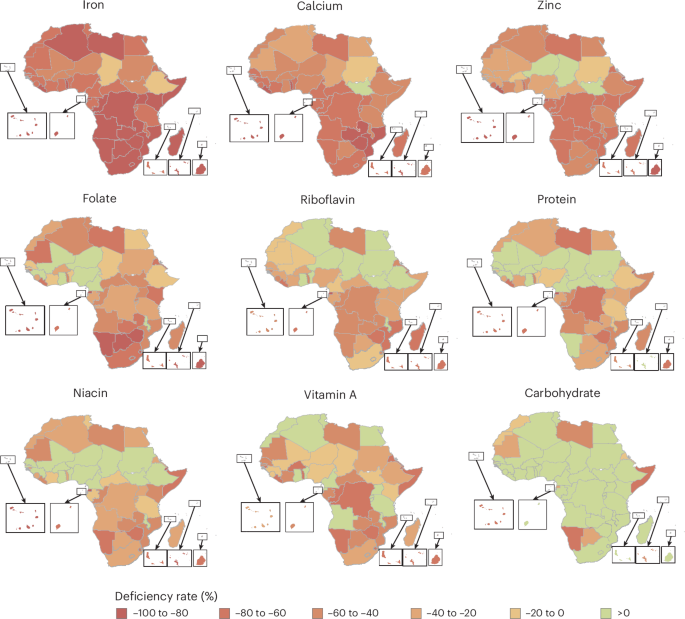
Despite significant advancements in agricultural practices, national food production in African countries remains insufficient to address critical nutrient gaps. This revelation comes from a recent study published in Nature Food, which highlights the alarming disparities in nutrient availability across the continent.
The study, led by Wang et al., underscores the daunting challenges faced by African nations in achieving dietary micronutrient adequacy. The researchers analyzed global food nutrient distribution and found that many African countries are unable to produce enough nutrient-rich foods to meet the dietary needs of their populations.
Understanding the Nutrient Deficit
The nutrient gap in African food production is not a new phenomenon. According to a 2021 study by Beal in One Earth, achieving dietary micronutrient adequacy requires a multifaceted approach, including improved agricultural practices and diversified food sources. However, limited resources and environmental challenges continue to hinder progress.
Moreover, a 2018 study by Wood et al. in Nature Sustainability pointed out that global trade plays a crucial role in the equitability of food nutrient distribution. African countries often rely on imports to supplement their nutritional needs, but this is not always a sustainable or reliable solution.
Expert Opinions and Recommendations
Experts like Akiwumi from the United Nations Conference on Trade and Development (UNCTAD) have called for bold actions to revitalize African agriculture. In a 2022 blog post, Akiwumi emphasized the need for innovative agricultural policies and investments to enhance food self-sufficiency and nutritional security.
Similarly, Navarre et al. in a 2023 study published in One Earth advocated for interventions that align national agricultural practices with the EAT–Lancet dietary guidelines. These guidelines emphasize the importance of sourcing diverse and nutrient-rich foods within national agricultural areas.
Impact of Global Events
The global food supply chain has been significantly disrupted by recent geopolitical events, such as the Russia-Ukraine conflict. According to Lin et al. in a 2023 article in Global Food Security, these disruptions have exacerbated food insecurity in many African nations, highlighting the vulnerability of relying on international food imports.
Furthermore, climate change poses an ongoing threat to agricultural productivity in Africa. Mugambiwa and Tirivangasi’s 2017 research in Jamba outlined how climate change impacts efforts to achieve Sustainable Development Goal number two, which aims to end hunger and promote sustainable agriculture.
Strategies for Improvement
To address these challenges, Ndegwa et al. in a 2023 study in the International Journal of Agronomy recommended integrated soil fertility and water management practices to enhance agricultural productivity. Such practices can help close yield gaps and improve nutrient availability.
Aramburu-Merlos et al. in a 2024 article in Nature Communications further emphasized the adoption of yield-improving practices to meet the growing demand for staple crops like maize without expanding cropland. This approach could significantly boost food production efficiency and nutrient content.
Future Outlook and Policy Implications
The path forward for African food security involves a combination of local and international efforts. As noted by Jayne and Sanchez in a 2021 Science article, improving agricultural productivity in sub-Saharan Africa is crucial for long-term food security.
Additionally, the African Continental Free Trade Area (AfCFTA) presents an opportunity for enhanced agricultural development and trade, as highlighted by Janssens et al. in a 2022 Nature Food article. By fostering intra-continental trade, African nations can better distribute nutrient-rich foods and reduce dependency on external imports.
Ultimately, addressing nutrient gaps in African food production requires a holistic approach that combines technological innovation, policy reform, and international cooperation. As the continent continues to face environmental and economic challenges, strategic interventions will be essential to ensure a sustainable and nutritionally adequate food supply for future generations.





